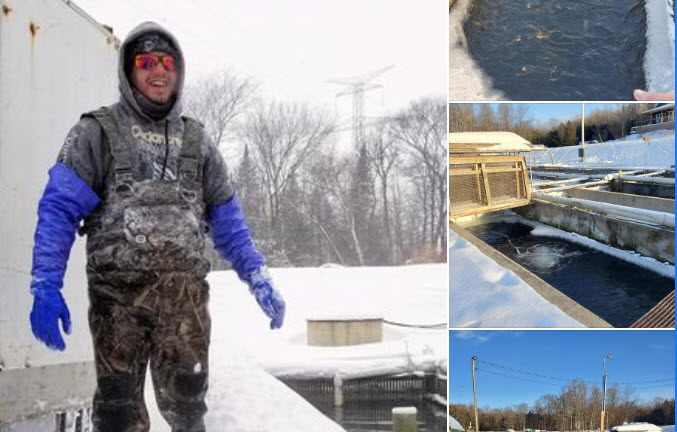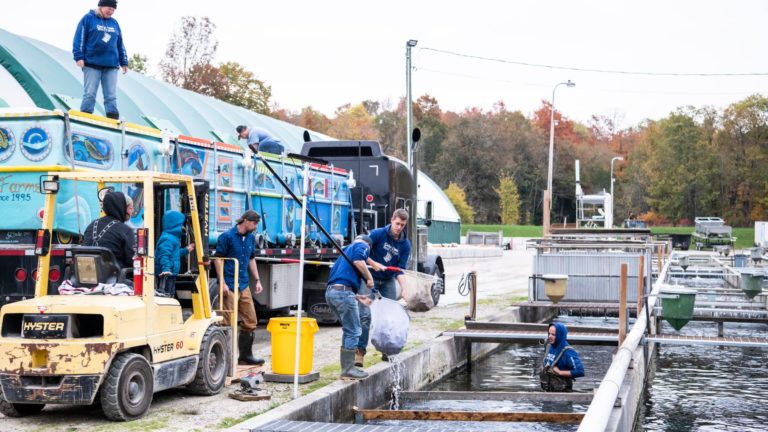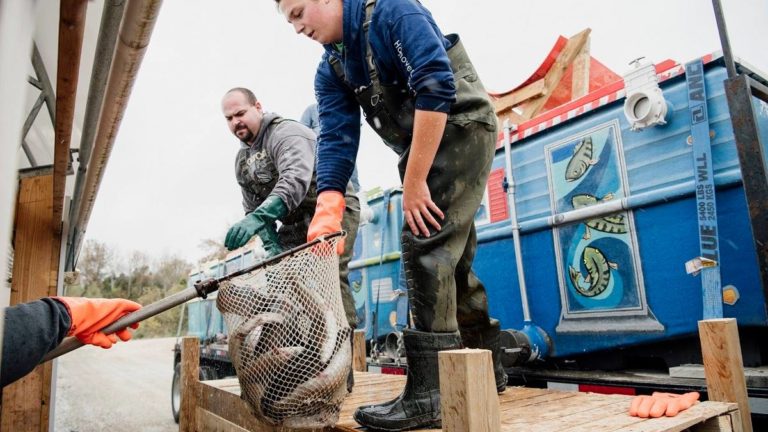
This is still greatly debated and undecided. But as some scientists learn more, they’re finding that fish can suffer and feel pain. We fish farmers would agree.
Researchers have confirmed that fish like salmon and trout have brains that can receive negative stimuli. It’s debated what their brain does with these stimuli AND whether they get that shock of pain us humans get (like after stubbing our toe ).
Let’s say a salmon gets bitten by a bear and falls back in the river. Scientists would agree that the fish understood it got injured. The fish’s body flushes with adrenalin and cortisol (the stress hormone) so it can fight or flight its way to safety.
But only some scientists would argue it feels a prick of discomfort when the bite happened, and thus has a distressing reaction and suffers. Others would say it doesn’t.
Us fish farmers take a broader look at the issue.
If a fish’s brain understands something negative is happening.. and it reacts by getting stressed, panicked, and overwhelmed.. it doesn’t matter if they felt that momentary shock of pain, because that fish is having an awful experience and it’s distressed and suffering.
Just because a fish doesn’t show reactions on its face like a puppy or a human, it doesn’t mean it isn’t feeling similar things. Fish show reactions in different ways. If they’re scared, they hide, flee, or crowd together.
If they’re stressed, they twitch and struggle, itch themselves, or find the part of the tank with the least water flow.
If they’re feeling sick, they shark at the surface or send bubbles.
And if they’re happy (like feeding time!), they school together, rush up to you, or rest peacefully near the bottom.
We handle and care for fish every day, and we know they have more complicated feelings than they get credited for.
Unlike the scientists, we don’t think of “pain” as that instant prick of surprise, but rather the entire negative experience of the fish. (Just like you can have discomfort, stress or adverse reactions without that surprise jolt either.)
It’s that negative experience of the fish we try to avoid on the farm through careful handling, transport, feeding, water quality, disease treatment and harvest.
Fish welfare is so important to us at Springhills that Arlen joined the national group writing Canada’s first welfare code for farmed fish in 2021. This debate was at the core of many regulations in that code.
Even though scientists disagreed on this topic, the code’s Scientific Committee concluded that “given the moral consequences” of assuming the fish can’t feel pain, we should take a precautionary approach and assume that they do.
Us fish farmers couldn’t agree more!


